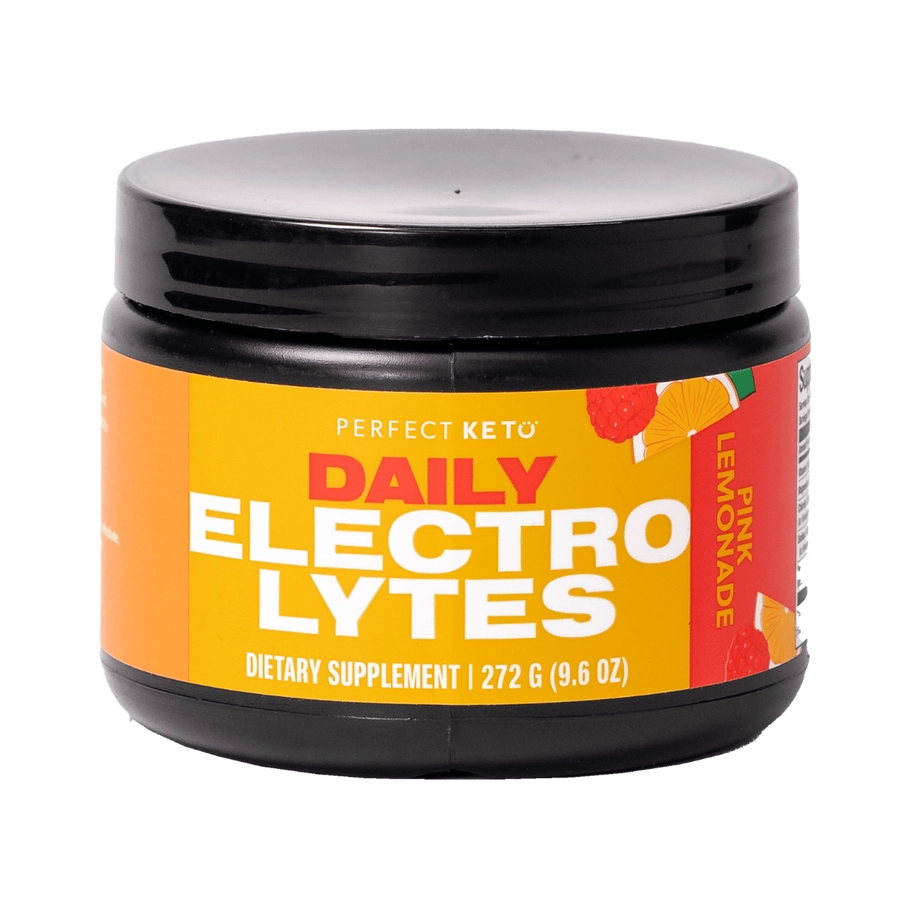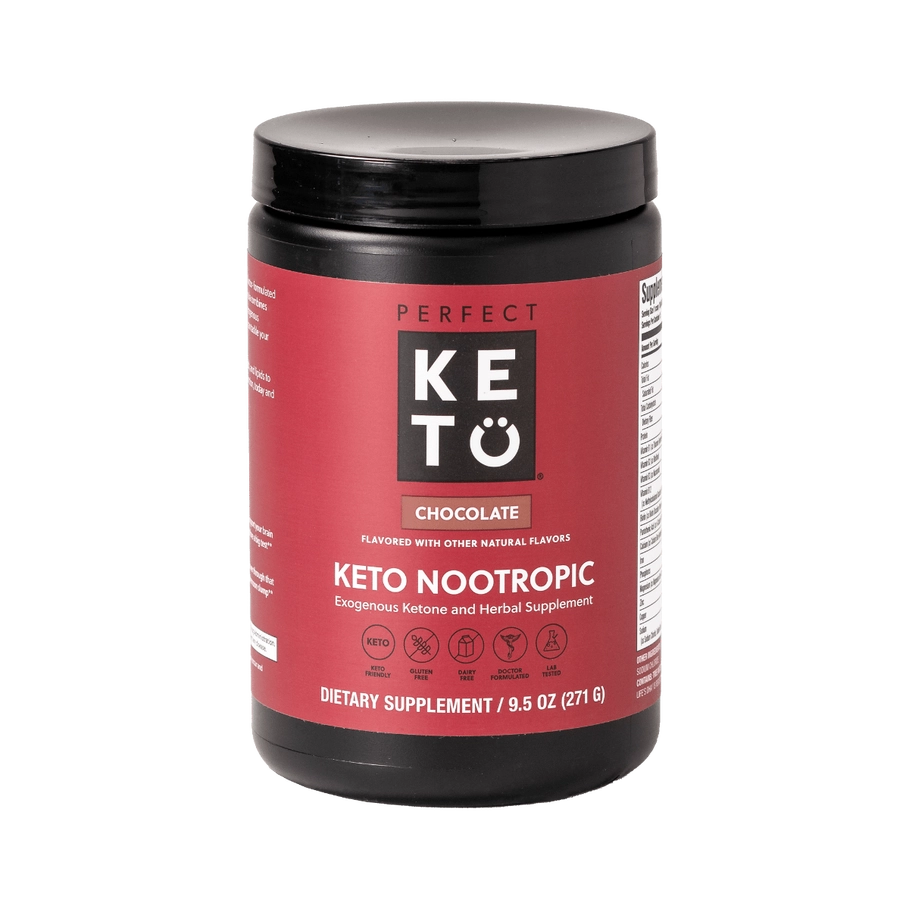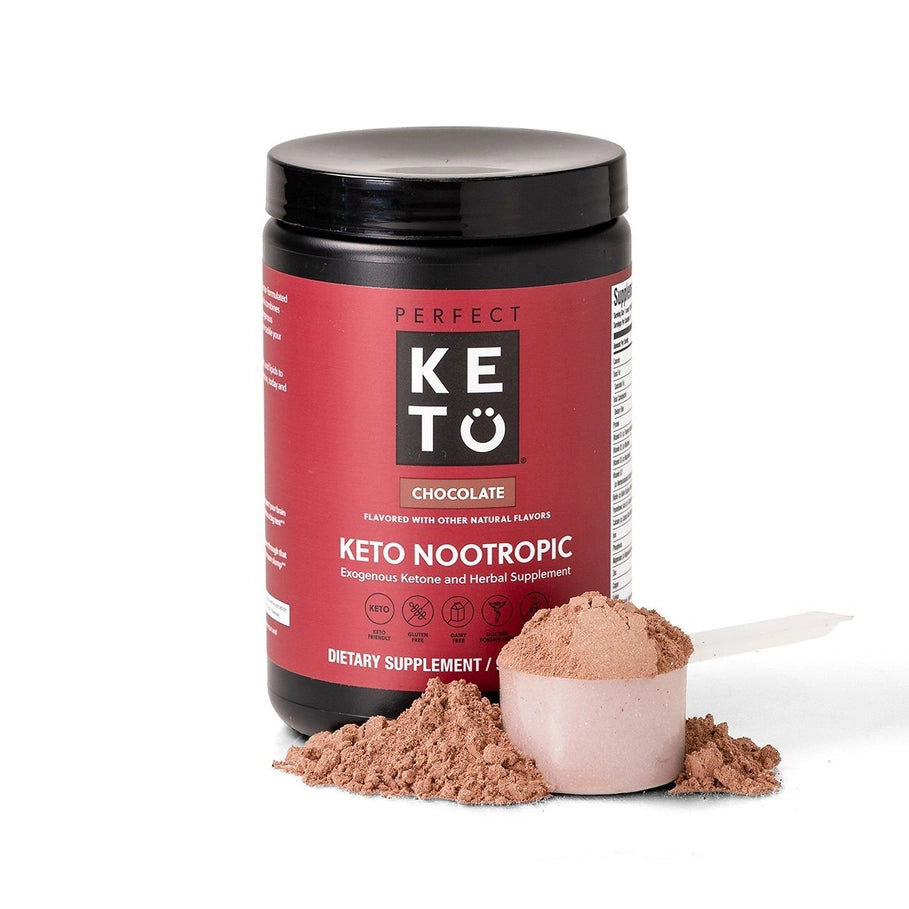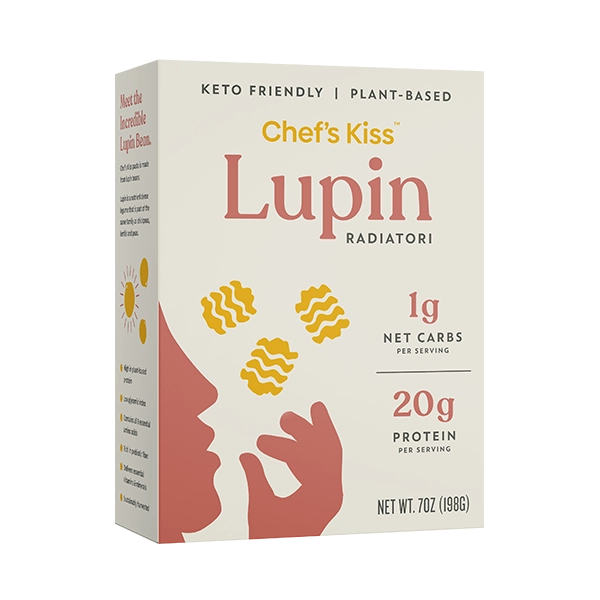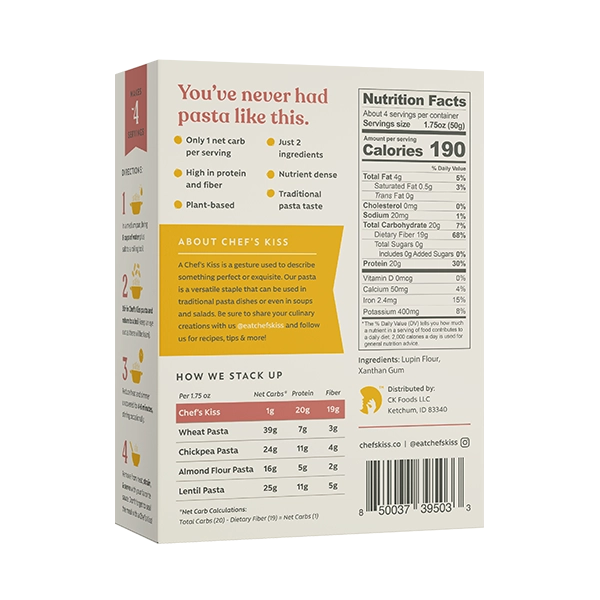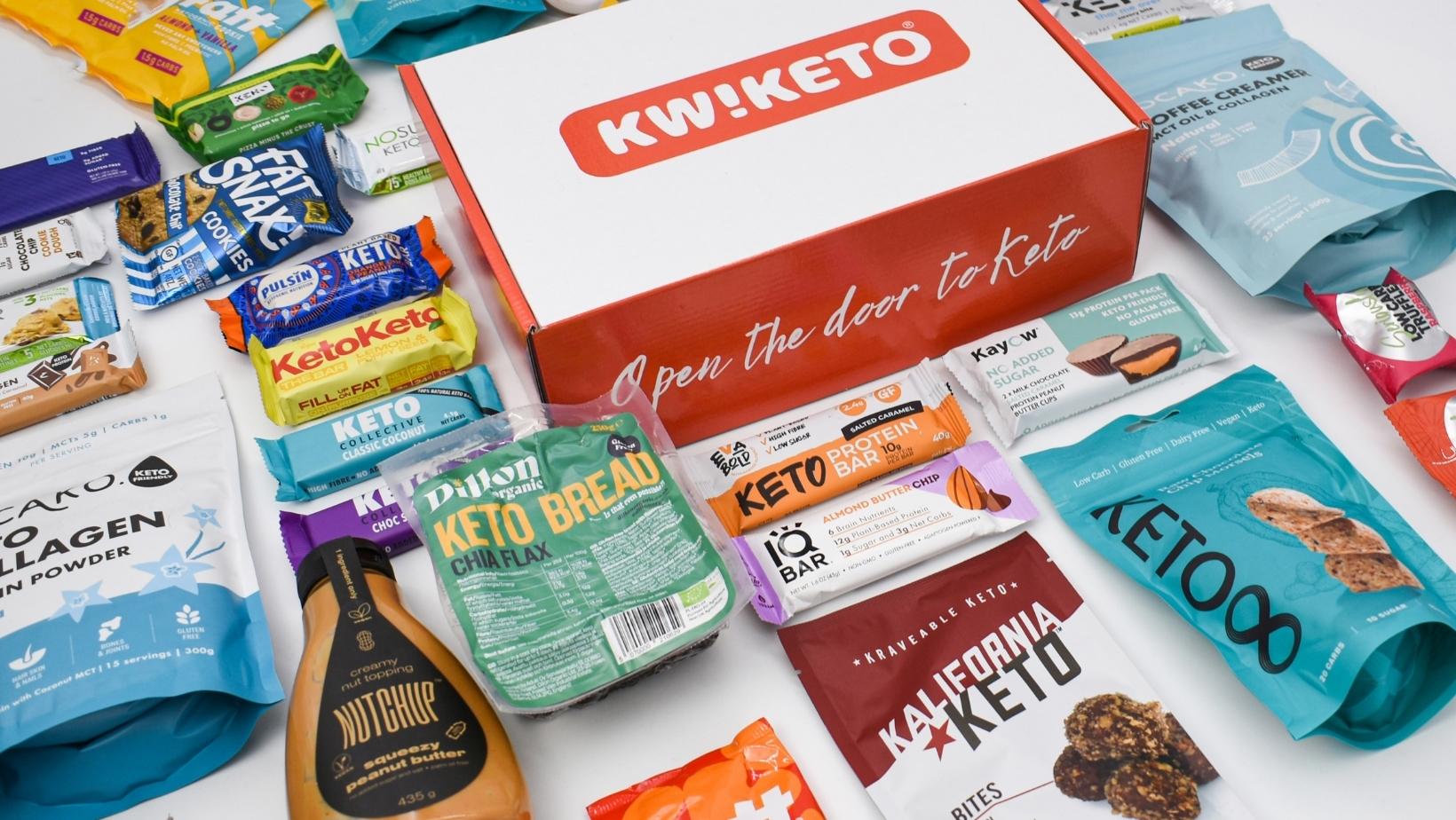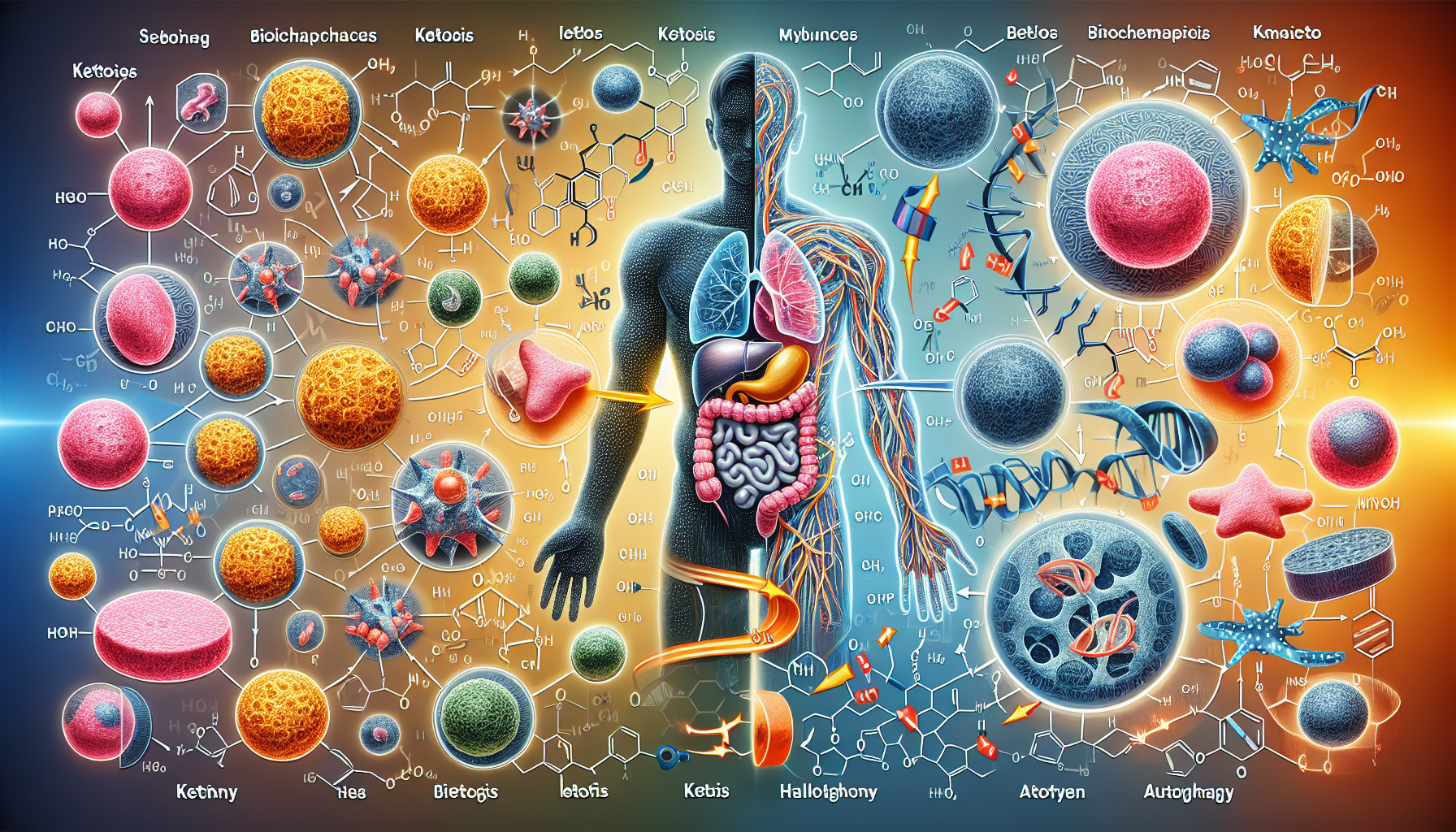
Ketosis vs Autophagy: Key Differences and Health Benefits
Ketosis vs Autophagy: A Comprehensive Guide to Their Roles in Health
In the ever-evolving landscape of health and wellness, two biological processes stand out for their unique impact on the human body: ketosis and autophagy. While both processes are distinct, they play critical roles in cellular health, energy metabolism, and disease prevention, making their understanding fundamental for anyone keen on optimizing their health. The exploration of ketosis and autophagy, their mechanisms, and their implications for well-being is not merely academic but a practical approach to harnessing the body's innate capabilities for maintenance, repair, and optimal function.
This article delves into the key concepts of ketosis and autophagy, shedding light on the science behind each process, their key differences, and their individual health benefits. Furthermore, it explores how ketosis and autophagy can work in tandem to enhance health outcomes. By providing a comprehensive overview of Ketosis vs Autophagy and outlining their Key Differences and Health Benefits, readers will gain insight into how these vital processes impact overall health and how they can be optimized for wellbeing.
Understanding Ketosis
What is Ketosis?
Ketosis is a metabolic state characterized by elevated levels of ketone bodies in the body, which occurs when carbohydrate intake is very low. The body typically prefers to use glucose, derived from carbohydrates, as its primary source of energy. However, when carbohydrate intake is drastically reduced, the body turns to fat for energy, leading to the production of ketones 1. These ketones, including beta-hydroxybutyrate (BHB), acetoacetate, and acetone, are then used by various cells in the body, including brain cells, as an alternative energy source 2.
How Ketosis Works
The process of entering ketosis begins with the dietary restriction of carbohydrates, typically to fewer than 50 grams per day, and in some cases, as low as 20 grams per day. This lack of carbohydrates forces the body to deplete its glucose reserves, leading to a decrease in insulin levels. As a result, fatty acids are released from body fat stores and transported to the liver, where they are oxidized and converted into ketone bodies 1. These ketones are then circulated throughout the body and used by cells to generate energy. Notably, ketones can cross the blood-brain barrier, providing a crucial energy source for the brain during periods of low carbohydrate availability 1.
Health Benefits of Ketosis
Ketosis has been associated with several health benefits, primarily related to weight management, metabolic health, and neurological conditions. One of the most significant benefits of ketosis is weight loss, as the process can increase satiety and reduce overall calorie intake 3. Additionally, ketosis may improve metabolic markers such as blood sugar and lipid levels, contributing to better management of conditions like type 2 diabetes and metabolic syndrome 3.
Research has also highlighted the potential neurological benefits of ketosis, particularly in the management of epilepsy. The ketogenic diet, which induces ketosis, has been found to reduce the frequency of seizures in individuals with epilepsy, especially in those who do not respond to traditional treatment methods 2. Moreover, ketones produced during ketosis, such as BHB, have been studied for their neuroprotective properties, which may help in the management of other neurological disorders and contribute to improved brain health 456.
In summary, ketosis is not only a critical metabolic state for weight loss and energy regulation but also holds potential benefits for neurological health. By understanding how ketosis works and the conditions under which it occurs, individuals can better harness this metabolic state to potentially improve their overall health and well-being.
The Science Behind Autophagy
What is Autophagy?
Autophagy, derived from the Greek words for "self" (auto) and "eating" (phagy), is a natural, regulated mechanism of the cell that disassembles unnecessary or dysfunctional components 7. This process involves the degradation of the cell's own components through the lysosomal machinery, a critical process for cellular cleaning and recycling 89.
How Autophagy Works
Autophagy maintains cellular function by removing damaged or superfluous organelles and proteins through a structured process. Initially, autophagosomes form around the material to be degraded, which then fuse with lysosomes to form autolysosomes where the contents are broken down and recycled 89. This process is essential for cellular health and adaptation to stress, such as nutrient deprivation or damage 8910.
Health Benefits of Autophagy
Autophagy plays a vital role in health and disease, providing a protective mechanism against various pathologies including neurodegenerative diseases, cancer, and infections. By removing damaged cellular components, autophagy prevents the accumulation of cellular debris and supports cellular renewal and homeostasis 89. It is also involved in the immune response by eliminating invading pathogens and presenting antigens to the immune system 8. Furthermore, autophagy has been linked to lifespan extension and plays a crucial role in disease prevention and therapy, particularly in cancer and neurodegeneration 8910.
Key Differences between Ketosis and Autophagy
Biological Processes
Ketosis and autophagy are distinct biological processes that the body utilizes to maintain health and energy efficiency. Ketosis is primarily a metabolic state where the liver produces ketones from fats due to low carbohydrate intake, providing an alternative energy source for the body, particularly the brain 1112. Autophagy, on the other hand, is a catabolic process involving the degradation of a cell's own components through the lysosomal machinery, crucial for recycling cellular debris and dysfunctional proteins 78.
Triggers and Conditions
The triggers for ketosis and autophagy differ significantly. Ketosis is induced by conditions of carbohydrate restriction or prolonged fasting, leading the body to switch from glucose to fat as its primary energy source 1112. Autophagy is triggered by a variety of stressors including nutrient deprivation, physical exercise, and oxidative stress. It serves as a critical response mechanism to remove damaged cells and regenerate newer, healthier cells, thus maintaining cellular health 7813.
Outcomes and Benefits
While both processes offer significant health benefits, their primary outcomes and benefits vary. Ketosis is beneficial for weight management, enhanced brain function, and increased metabolic efficiency. It promotes the use of fat as energy, which can lead to significant fat loss and improved management of conditions such as epilepsy and Alzheimer’s disease 11126.
Autophagy, however, plays a vital role in cellular cleansing and renewal. It helps in the prevention of diseases by removing damaged and dysfunctional cellular components, which can contribute to oncogenesis or neurodegeneration. Furthermore, autophagy is associated with longevity and improved immune response, making it crucial for overall health maintenance and disease prevention 7813.
These differences highlight the unique roles that ketosis and autophagy play in health and disease, emphasizing the importance of understanding both processes to optimize health outcomes.
Health Benefits of Ketosis
Weight Loss and Fat Burning
The ketogenic diet is renowned for its role in promoting weight loss and enhancing fat burning. By restricting carbohydrate intake to typically 50 grams or fewer per day, the body depletes its glycogen stores and begins to utilize fat as its primary energy source 1415. This shift not only results in significant water weight loss due to the glycogen-bound water being released but also enhances the body's ability to burn stored fat. Research indicates that this metabolic state makes it easier to maintain a metabolic rate and feel fuller on fewer calories, thus supporting sustained weight loss 1415.
Neurological Benefits
Ketosis has shown promising results in the treatment of various neurological disorders, including epilepsy and Alzheimer's disease. The production of ketones like beta-hydroxybutyrate (BHB) during ketosis provides an alternative energy source for the brain, which can be particularly beneficial in conditions where glucose metabolism is impaired 516. Studies have demonstrated that a ketogenic diet can lead to improved mitochondrial function and reduced oxidative stress, which are vital in managing and potentially reversing symptoms in neurodegenerative diseases 16. Furthermore, ketones are known to stimulate the activation of protective pathways such as the nuclear factor erythroid-derived 2-related factor 2 (Nrf2), which helps in reducing oxidative damage and improving cellular function 16.
Anti-inflammatory Benefits
Ketosis also exerts significant anti-inflammatory effects, which are beneficial across a range of chronic conditions. Beta-hydroxybutyrate has been shown to inhibit the activation of inflammatory pathways like the nuclear factor kappa-light-chain-enhancer of activated B cells (NF-kB) and the NLRP3 inflammasome. This leads to a reduction in the production of inflammatory cytokines such as interleukin-1beta and interleukin-18, which are implicated in various inflammatory diseases 16. Additionally, the ketogenic diet enhances the production of adenosine, a molecule that has been shown to reduce inflammation and pain by modulating immune responses and protecting nerve cells 17. This anti-inflammatory action is crucial not only for managing pain but also for improving overall cellular recovery and health 17.
Health Benefits of Autophagy
Cellular Repair and Maintenance
Autophagy is an essential cellular process that helps maintain cellular health by degrading damaged organelles and superfluous proteins. This process is crucial for cellular balance during stress and prevents the accumulation of cellular debris, which can impede cellular functions 18. As cells age, autophagy naturally decreases, leading to a build-up of parts that no longer function optimally, which in turn can affect the overall health of the cell 19. By recycling these components, autophagy supports the survival and proper function of cells, particularly in stressful conditions like nutrient deprivation 20.
Disease Prevention
The role of autophagy in disease prevention is significant due to its ability to regulate various cellular mechanisms that could lead to disease. Dysregulation of autophagy has been linked to a variety of diseases, including neurodegenerative disorders, cancer, and metabolic diseases 18. Autophagy helps in the removal of dysfunctional mitochondria and reduces the activation of the NLRP3 inflammasome, which is involved in inflammatory responses and can lead to diseases such as atherosclerosis and type 2 diabetes 18. Moreover, by clearing out pathogens and presenting antigens to the immune system, autophagy plays a crucial role in defending against infections and maintaining immune health 18.
Longevity
Recent studies have shown that autophagy is closely linked to longevity. Genetic evidence indicates that basal levels of autophagy are elevated in various longevity paradigms and are necessary for lifespan extension 21. Autophagy facilitates the turnover of mitochondria and proteins, which is vital for maintaining cellular health and energy balance. This process is enhanced by lifestyle factors such as physical exercise and dietary restriction, which have been shown to activate autophagy and potentially extend lifespan 1821. Additionally, natural compounds like spermidine and resveratrol have been found to promote autophagy, contributing to extended lifespan in several model organisms 21.
Ketosis and Autophagy in Tandem
Simultaneous Occurrence
Ketosis and autophagy can indeed occur simultaneously, especially during periods of fasting. When individuals fast for more than 17 hours while keeping protein intake low, they are likely to experience both ketosis and autophagy 22. This dual occurrence is due to the body's adaptation to energy scarcity; as glycogen stores deplete, the body not only shifts to ketosis by metabolizing fat into ketones but also initiates autophagy to recycle cellular components for energy 23.
Combined Health Benefits
The health benefits of ketosis and autophagy, when experienced together, are particularly potent. Ketosis provides an alternative energy source through ketone bodies, which are beneficial for brain health and metabolic efficiency. Concurrently, autophagy recycles damaged cellular components, which can prevent diseases and enhance cellular function 1224. Together, these processes not only support weight loss and improve brain function but also strengthen the body’s defense against neurodegenerative diseases and cancer by maintaining cellular health and integrity 24.
Best Practices for Inducing Both
To maximize the benefits of both ketosis and autophagy, certain practices can be adopted. Intermittent fasting is a practical approach, as it simplifies the induction of both processes without requiring drastic dietary changes. Fasting for periods ranging from 17 to 72 hours, while keeping protein intake under 20 grams, can effectively trigger both ketosis and autophagy 2224. Additionally, incorporating exercise during fasting periods can further enhance autophagy, as physical activity increases the demand for cellular energy, thus accelerating the breakdown and recycling of cellular components 24.
Conclusion
Through this article, we have embarked on a scientific journey exploring the fundamental mechanisms and profound health benefits associated with ketosis and autophagy. While both processes serve distinct purposes within the body—ketosis acting as an alternative energy source during periods of low carbohydrate intake, and autophagy playing a crucial role in cellular repair and maintenance—they converge on the common goal of enhancing overall health. The exploration of their differences and individual benefits underscores the significance of these biological processes in weight management, disease prevention, brain health, and potentially extending longevity.
Understanding how to harness the power of both ketosis and autophagy through practical approaches like intermittent fasting and protein restriction opens new avenues for improving health outcomes. As we conclude, it's clear that the synergistic effects of ketosis and autophagy embody potent strategies against a myriad of health challenges, from obesity and metabolic disorders to neurodegenerative diseases. Future research into optimizing these processes could unlock even greater insights into achieving optimal health and well-being, encouraging a holistic approach to nutrition and lifestyle choices.
FAQs
1. How do ketosis and autophagy differ in terms of dietary protein requirements?
Autophagy typically begins between 17 to 72 hours of starting a fast and requires a very low protein intake, ideally under 20g. In contrast, when aiming for ketosis, the protein intake is usually kept under 50g.
2. What are the potential health advantages of autophagy?
Autophagy plays a crucial role in bolstering the immune system by removing toxins and infectious agents. It may also help manage and possibly improve conditions related to infectious and neurodegenerative diseases by controlling inflammation.
3. Are there any health benefits associated with ketosis?
Ketosis may contribute to a reduced risk of heart disease. Additionally, very low-carb ketogenic diets have been found beneficial for individuals suffering from metabolic syndrome and insulin resistance.
4. Is it possible to induce autophagy without entering ketosis?
Yes, autophagy can be induced through methods such as intermittent fasting and calorie restriction, independent of achieving ketosis. Most studies on this subject have been animal-based, and it remains unclear which specific cell types initiate autophagy in response to fasting.

